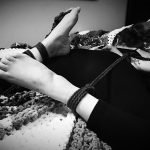Understanding Local Zoning Ordinances
When we embark on the process of establishing a swingers club, the first layer of compliance is zoning laws. Zoning regulations define where certain types of businesses can legally operate. These codes vary by city, county, and even neighbourhood, and misunderstanding them can lead to costly shutdowns.
Table Of Content
- Understanding Local Zoning Ordinances
- Applying for the Right Licenses
- Complying with Health and Safety Codes
- Navigating Conditional Use Permits
- Implementing Clear Privacy Policies
- Addressing Noise and Nuisance Ordinances
- Staying Informed on Local Law Changes
- Training Staff on Legal Compliance
- Working with Legal and Insurance Professionals
- Engaging the Community Respectfully
- Conclusion: Building Legally Secure and Trusted Spaces
To secure a compliant location, we begin by researching the local municipality’s zoning map. Swingers clubs often fall under designations for adult entertainment, private membership organisations, or social clubs. We engage with local zoning boards to determine which districts permit such venues and whether special permits or conditional use approvals are required.
Many cities maintain restrictions that keep adult venues away from schools, places of worship, residential areas, or other sensitive zones. By proactively selecting a location within the permitted boundaries, we avoid community conflicts and demonstrate our respect for local standards.
Applying for the Right Licenses
Operating a swingers club legally demands an array of licenses, each tailored to the services provided. At the core, a business license legitimises our operations in the eyes of the local government. Depending on the venue’s features—such as serving alcohol, hosting large events, or offering entertainment—we may require additional endorsements.
If we allow alcohol consumption, we must apply for a liquor license or, in BYOB (Bring Your Own Bottle) models, ensure local statutes permit guests to bring alcohol onto the premises. Missteps here can result in steep fines or revocation of operating privileges.
Many jurisdictions also mandate adult entertainment licenses if the club provides performances, erotic shows, or dancing that falls under local definitions of adult entertainment. Obtaining this license typically involves background checks, public hearings, and community input. We approach these requirements with thorough documentation and community engagement to ease concerns and establish our club as a responsible neighbour.
Complying with Health and Safety Codes
Health and safety compliance extends beyond general business licensing. Local health departments may inspect clubs for fire safety, occupancy limits, sanitation standards, and the provision of safe sex supplies. We collaborate with building inspectors to guarantee our venue meets fire exit standards, maintains up-to-date sprinklers, and displays occupancy certifications clearly.
If our club provides amenities like hot tubs or pools, we secure additional permits and adhere to public health regulations, which may include regular water testing and sanitation protocols.
Navigating Conditional Use Permits
In districts where adult clubs are not outright permitted, we may pursue a Conditional Use Permit (CUP). This process typically involves detailed applications, public hearings, and sometimes neighbourhood input. We prepare comprehensive proposals that outline how our club will operate discreetly, minimise noise or traffic concerns, and respect the surrounding community.
Community buy-in is vital. Hosting informational meetings and addressing concerns directly fosters goodwill and positions our club as a well-managed asset rather than an unwanted nuisance.

Implementing Clear Privacy Policies
Legal operation also means strict adherence to privacy laws. We protect our members’ identities through robust data security practices and explicit privacy policies. These documents explain what information we collect, how we use it, and how we safeguard it from misuse or leaks.
We maintain secure digital databases with restricted access. All staff sign confidentiality agreements and are trained on data protection. By demonstrating this commitment, we not only comply with applicable privacy laws but build trust within our community.
Addressing Noise and Nuisance Ordinances
Another crucial local consideration is compliance with noise and nuisance ordinances. Clubs that operate late into the night must manage sound levels carefully to avoid complaints. We invest in soundproofing solutions and set clear policies regarding outdoor gatherings or smoking areas.
Parking can also trigger conflicts with surrounding businesses or residents. We design parking solutions that prevent overflow into restricted areas and provide clear signage for patrons.
Staying Informed on Local Law Changes
Zoning, licensing, and adult entertainment regulations evolve. We remain vigilant by subscribing to municipal newsletters, participating in local business associations, and consulting legal counsel regularly. Being proactive ensures our club stays compliant with new ordinances or changing community standards.
When legislative changes arise, we respond with transparent communication to members and staff. Whether updating operational hours or modifying event formats, we adapt swiftly to keep our reputation intact.
Training Staff on Legal Compliance
Our staff are our front line of legal compliance. Every employee is briefed on the club’s licensing requirements, safety protocols, and privacy policies. Training includes how to verify age, monitor alcohol consumption, and recognise when activities might push legal boundaries.
We empower our team to report potential violations immediately. Managers maintain an open-door policy for concerns, questions, or observations that can prevent minor issues from escalating into legal crises.
Working with Legal and Insurance Professionals
Professional legal and insurance partners are non-negotiable. We retain attorneys with experience in adult entertainment and zoning matters to guide our applications, represent us at hearings, and help draft contracts that protect our interests.
Robust liability insurance protects our business against unexpected events, from property damage to guest incidents. This coverage, combined with clear waivers signed by members, helps shield us from costly lawsuits.
Engaging the Community Respectfully
Proactive engagement with local communities transforms our club from a source of apprehension into a respectful business neighbour. We maintain open communication with local leaders, attend city council meetings, and invite constructive dialogue about our impact.
Hosting charity events, supporting local causes, and demonstrating genuine investment in the neighbourhood help counter stereotypes and reinforce our commitment to ethical operations.
Conclusion: Building Legally Secure and Trusted Spaces
When we understand and uphold licensing, zoning, and local laws, we ensure our swingers club operates with integrity, transparency, and longevity. By respecting every legal nuance—from health inspections to privacy safeguards—we create an environment where our community can thrive without fear of legal disruptions. Through proactive planning, diligent compliance, and responsible community relations, we stand as a model for what a well-managed, law-abiding club should be.





